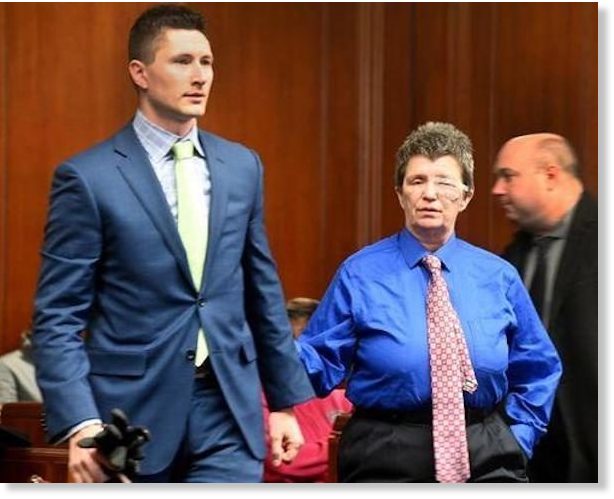Sort of like radical feminists etc. These people get their sense of identity out of the things that they oppose, so for some feminists, they don't really want to see an end to, for instance, male chauvinism (real or imagined) since then they would have nothing with which to maintain and fuel their ideologies, and if there is no verification for their ideologies, their whole wordview would have to be reconsidered.
We can say the same about MGTOW and MRA and those who go 'Full Tomassi', so to speak.
It's all quite sad, actually. As far as I can see, yes, adjustments needed to be made, and still need to be made.
But I don't think anyone needs more rights. That's what they say they are seeking, but what they are really seeking is justice (as they define it) for misdeeds, slights, and wrongs - both real and imagined.
The systems of laws in place are supposed to be inadequate, so therefore we need more laws to have more justice. That often means that we need laws against a majority in support of a minority. At the very least, it means we needs laws boosting one side of the population while minimizing the other side.
But how on earth can that work? Justice for homosexuals at the expense of heterosexuals? Justice for men at the expense of women? Justice for women at the expense of men?
In every case, the end result would lead to complete nothingness if taken to its full conclusion. Take radical anti-male feminists. Let's say they get their way. Okay, down with men! Everyone's a lesbian now. Congratulations, you got what you wanted. Now just wait 1 generation, and the human race will cease to exist. This would no doubt be a great relief to such feminists, because without the evils of the Patriarchy to rant against, what would be their purpose in life?
How about less radical feminists who just want men to stop being men (at least Dr. JP won't be out of a job)? That also leads to nothingness, because men stop being men. While outwardly, these women will be 'happy' with the situation, divorce rates start going up because inwardly, women are unhappy - both because they no longer have anything to work for since all men are now feminized, and also because who wants to be with a girly-man? Obviously, men are also unhappy. The only solutions would be: let men be men again, or go Full Radical Feminist and get rid of 'em. See previous paragraph for the conclusion. Or, men go their own way...
Well, okay, how about MGTOW? Yup, you don't need women! Forget about real love and intimacy! Just have sex with your computer or a robo-babe with impossibly large synthetic jumblies. You'll show them, alright! One generation later, no more human race.
What about Full Tomassi? Well, according to the theory and if taken to its extreme: A small number of men would have a
lot of boinking to do. Many would soon die of exhaustion. The rest of the men would be seriously unhappy. A huge majority of women would be seriously unhappy since they would quickly tire of having their hopes dashed after repeated encounters with charming-yet-psychopathic Energizer Man-Bunnies. Sooner rather than later, everything collapses since even the
ideas of rearing children or love or genuine connection all get tossed by the wayside. The larger group of unhappy men would probably go MGTOW in revenge, women would become rabid feminists, and see above.
Now, maybe that's all a bit extreme, but it seems to me that this is exactly what these groups are promoting. They haven't actually attempted to take their ideas to their logical conclusions. They just want to "feel better". So, they push an agenda that doesn't take all the variables into account. They don't realize that their Only Solution to what they see as the world's problems is actually perfectly designed (by them!) to result in full and total and
even worse unhappiness - not only for them, but for everyone else as well.
It's all rather nihilistic. I suppose that shouldn't be terribly surprising since the Western world has been "all about me" for quite some time now. Like the C's say, I guess there's a program for everyone...
On the plus side, it does give a lot of food for thought. It's easy to get riled up about this or that, but it's not so easy to look at it, think about it, deal with one's own feelings about life, love, and so on, and then make informed and considerate modifications that take all the variables into account.
As in: What does it really mean - or what
should it mean - to be a man, woman, gay, straight, or whatever in our so-called modern world?




